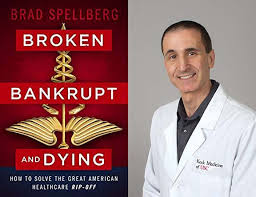

Health Insurance. Is it a lifeline, a necessary evil, or just an elaborate scam? Let's unravel the mystery together!
Health insurance is a complex and often controversial subject. With rising premiums, confusing policies, and stories of denied claims, it's no wonder that many are questioning its validity. But is this skepticism warranted, or are we missing the bigger picture? We'll explore the nitty-gritty of health insurance - from its history, how it works, to the economics driving it. Get ready for some eye-opening statistics and surprising facts that will give you a new perspective!
Is health insurance a scam? A heated question, isn't it? This question has been floating around, creating ripples of doubt in the minds of many. It's no secret that the world of health insurance can be complex and at times overwhelming with countless policies, terms and conditions. It's easy to feel lost, leading some to wonder if it's all just a cleverly disguised scam. The controversy and debate surrounding health insurance are as diverse as the policies themselves. Some view it as a lifesaver, a safety net providing financial protection against unforeseen health crises. Others, however, see it as a money draining trap with high premiums and deductibles that seem to offer little in return. But is there any truth to these claims? Can health insurance really be labeled to scam? Or is it a misunderstood necessity.
As you can see, there's much to unpack here, stay tuned as we delve into the world of health insurance policies and their benefits before we go any further, it's important to understand what health insurance is. Essentially, health insurance is a contract between you and your insurance provider. You pay a monthly fee known as a premium, and in return, your provider agrees to pay a portion of your medical expenses. Now let's talk about deductibles. This is the amount you must pay out of pocket before your health insurance begins to cover your medical costs. For instance, if your deductible is 500 dollars, your insurance won't kick in until you've paid that amount for healthcare services. Next up is the out-of-pocket maximum. This is the most you'll have to pay for covered services in a year. Once you've reached this limit, your health insurance will cover the rest of your expenses for that year. Understanding these terms premium deductible and out-of-pocket maximum is crucial to navigating the world of health insurance. With a grasp on these basic concepts, we can now take a closer look at health insurance policies. Not all health insurance policies are created equal, they differ in various aspects.
Now let's delve into the comparison of different types of health insurance policies. Private insurance, employer- provided insurance and government provided insurance.
Each comes with its unique set of benefits and potential drawbacks. Starting with private health insurance, this type often offers the most freedom.
You have the liberty to choose your doctors and hospitals and you can customize your plan to fit your specific needs. However, it's essential to note that this freedom comes with a higher price tag. Your premiums, deductibles and co-payments could be significantly higher than other insurance types. Next, we have employer provided insurance which is a popular choice for many.
This type of insurance is often more affordable because your employer usually pays a portion of the premiums plus it's convenient as the premiums are automatically deducted from your paycheck. However, the downside is that you might not have as much freedom to choose your healthcare providers. Also, if you leave your job, you could lose your coverage. Lastly, let's explore government provided insurance. These plans, such as Medicare and Medicaid, are typically low-co or even free for those who qualify. They can provide a lifeline for low-income individuals, the elderly, and people with certain disabilities. However, not everyone qualifies for these plans. Also, they may not cover all healthcare services and the choice of providers may be limited. In essence, private insurance offers the most freedom, but at a higher cost. Employer provided insurance strikes a balance between cost and choice, but it's tied to your job. Meanwhile, government provided insurance can be a lifesaver for those who qualify, but it may not offer the comprehensive coverage some people need. Remember when choosing a health insurance policy, consider your healthcare needs, budget and lifestyle. It's about finding a balance between what you need from your coverage and what you can afford.
As you can see each type of health insurance policy has its own set of advantages and disadvantages. Now back to our burning question Is health insurance? A scam.
Let's delve into this intricate debate.
On one side of the coin, some might view health insurance as a scam. Their reasons well. They often point to high premiums, out-of-pocket expenses, and the complex, sometimes incomprehensible jargon found in policy documents. They argue that these factors create a system where the insured individuals pay more than they ever receive in benefits, and let's not forget about those who've had their claims rejected due to loopholes or so-called pre-existing conditions.
To these individuals, health insurance may feel like a rigged game, but flip that coin and you'll find a different perspective. Many see health insurance as a necessary safety net. It's a buffer against the unpredictable, a guard against the daunting cost of medical emergencies.
Yes, the premiums might be high, but compare that to the cost of major surgery, long-term hospitalization, or chronic disease management. These costs can be catastrophic, even financially ruinous. For those who have faced such situations, health insurance has been a lifeline, a means to access necessary care without sinking into a sea of debt. However, it's important to recognize that not all health insurance policies are created equal. Some offer comprehensive coverage and reasonable premiums, while others are riddled with exclusions and high costs. It's a complex landscape, and navigating it requires careful research and consideration.
So is health insurance a scam? Well, like many things in life, it's not a simple yes or- no answer. It's a spectrum, a sliding scale of experiences and perceptions. For some, it may seem like a scam, an endless cycle of paying in more than they get out. But for others it's a lifeline, a critical safety net when life throws a curveball.
The answer to whether health insurance is a scam isn't black and white, it largely depends on individual perspectives and experiences, and that dear listeners is the heart of this debate. While there are differing opinions, one thing is clear, health insurance is a complex issue. This complexity comes from the intricate web of policies, premiums, deductibles, and out-of-pocket maximus that define the world of health insurance. We've delved into these basics, shedding light on the interplay between these elements and how they can impact you as a policy holder. We've also compared different health insurance policies, highlighting the diverse array of options available from HMS to POS. Each has its pros and cons, and understanding these can help you navigate the labyrinth of health insurance. Lastly, we've delved into the debate is health insurance a scam, or a necessity?
Opinions vary widely, with some seeing it as a means to exploit consumers, while others view it as a vital safety net. The answer is subjective and largely depends on individual experiences and circumstances. Whether you view health insurance as a scam or a lifesaver, it's crucial to make informed decisions. Always remember your health is your wealth. There is A Better Way America... It's Called Health Sharing Take A Look
